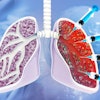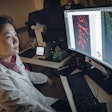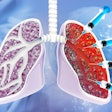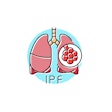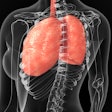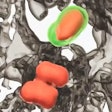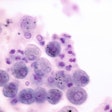
A Yale-led study, published in the journal Proceedings of the National Academy of Sciences, suggests that nasal application of neomycin could help prevent and treat upper respiratory infections, such as influenza and COVID-19.
The research team, led by Akiko Iwasaki, PhD, and Charles Dela Cruz, MD, PhD, examined the efficacy of neomycin, a common antibiotic, to treat or prevent viruses in animal models when given via the nose. The team also successfully tested the immune response by interferon-stimulated genes (ISGs) in healthy humans using the same nasal approach with over-the-counter ointment Neosporin, which contains neomycin.
The intranasal application of Neosporin initiated a strong expression of ISGs in a subset of human study participants. In mice, the intranasal application of neomycin showed a robust ISG line of defense against SARS-COV-2 and a highly virulent strain of influenza A virus. The researchers also found that an intranasal treatment of neomycin strongly mitigated contact transmission of SARS-COV-2 in hamsters.
“This is an exciting finding, that a cheap over-the-counter antibiotic ointment can stimulate the human body to activate an antiviral response,” said co-senor author Dr. Iwasaki, who is the Sterling Professor of Immunobiology and professor of dermatology at Yale School of Medicine. She is also professor of molecular, cellular and developmental biology in Yale’s Faculty of Arts of Sciences, professor of epidemiology at Yale School of Public Health and an investigator at the Howard Hughes Medical Institute.
“Our work supports both preventative and therapeutic actions of neomycin against viral diseases in animal models, and shows effective blocking of infection and transmission, Dr. Iwasaki said.
Currently, most therapies used to fight and stop progression of respiratory viral infections are delivered intravenously or orally, including antivirals, monoclonal antibodies and convalescent plasma therapy. In contrast, a nasal-centered therapy could have a greater chance of stopping infections before they can spread to the lower respiratory tract and can severe diseases, the researchers said.
“This collaborative multi-disciplinary work combined important insights from animal pulmonary infection modeling experiments with human study evaluation of this intranasal approach to stimulate antiviral immunity,” said Dr. Dela Cruz, who is now professor of medicine and director, Acute Lung Injury and Infection Center, at the University of Pittsburgh.
“Our findings suggest that we might be able to optimize this cheap and generic antibiotic to prevent viral diseases and their spread in human populations, especially in global communities with limited resources,” Dr. Iwasaki said. “This approach, because it is host-directed, should work no matter what the virus is.”




